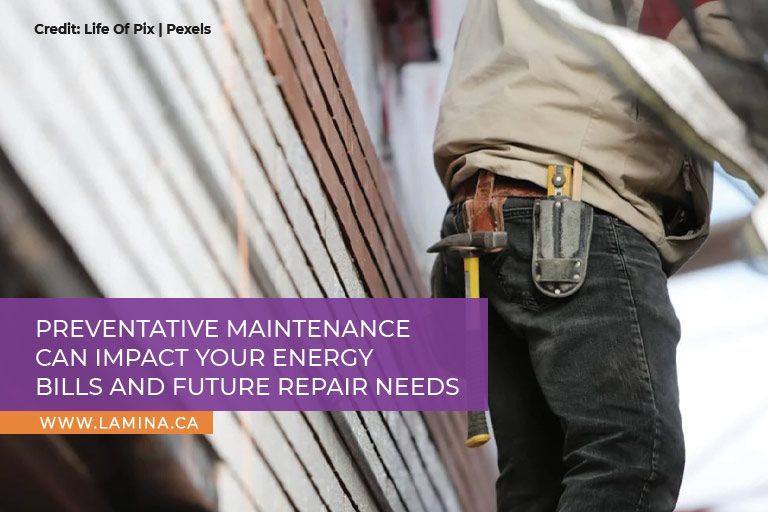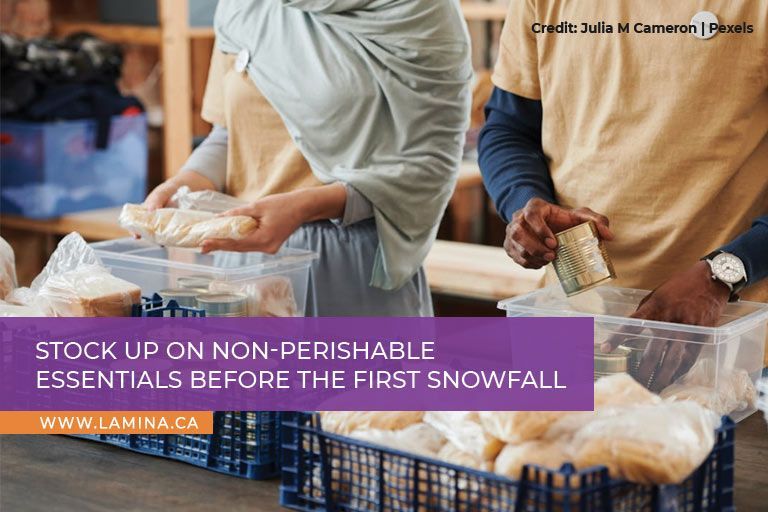Winter brings cozy nights by the fireplace, festive celebrations, and...potentially strained budgets. Increased energy bills, holiday spending, and unexpected winter emergencies can catch even the most prepared off guard. But fear not! By taking proactive steps now, you can ensure your finances stay as snug as your favourite winter sweater throughout the season.
Here are 9 tips to fortify your household's financial well-being and see your household through the winter with confidence:
- Prioritize Preventative Maintenance
Your home is your haven during winter. Before the icy winds arrive, tackle preventative maintenance tasks that can significantly impact your energy bills and future repair needs. Schedule a furnace tune-up to ensure optimal heating efficiency. Seal drafty windows and doors with weather stripping to prevent heat loss. Clean gutters and downspouts to avoid ice dams forming and potentially damaging your roof. These small investments can prevent costly repairs down the line.
2. Build a Solid Budget
Think of your budget as a roadmap to financial security. Review your past winter months' spending to get a realistic picture of your typical winter expenses. Include expected increases in utility bills, holiday spending, and potential winter-related car maintenance. Factor in grocery staples that might become pricier during snowstorms. Consider using budgeting apps or creating a dedicated winter spending category to track these seasonal costs effectively.
Be realistic. Winter often throws you into unexpected circumstances. Allocate a buffer in your budget for unforeseen expenses like snow removal or appliance repairs.
3. Become an Energy Efficiency Expert
Winter is synonymous with cranking up the heat, but that doesn't have to translate into skyrocketing energy bills. According to a Yahoo poll,
72% of Canadians saw a rise in winter heating bills in 2023.
Here are some clever energy-saving strategies:
Check your windows and doors for drafts. Caulk any gaps to prevent heat from escaping and cold air from entering.
Maximize natural light during the day to reduce reliance on artificial lighting.
A few degrees can make a big difference. Experiment with lowering your thermostat by a couple of degrees and layer up with cozy clothes to maintain comfort without breaking the bank.
Schedule a routine check-up for your furnace or heating system before winter arrives. A well-maintained system will
operate more efficiently, saving you money in the long run.
4. Plan for Holiday Spending
The festive season brings joy, but it can also be a financial strain. Here's how to avoid a holiday hangover in your bank account:
Set a realistic holiday budget and stick to it. Don't wait until December to start planning your gift list and purchases.
- Opt for Creative Gift-Giving
Who says presents have to be expensive? Consider homemade gifts, experiences (like museum passes), or thoughtful gifts that don't break the bank.
- Go for Smart Payment Options
Consider spreading the cost of holiday expenses by splitting larger purchases into manageable installments using a
hassle-free online installment loan. This option allows you to enjoy the holidays without feeling the financial pinch all at once.
5. Prepare Your Vehicle for the Winter
Winter driving conditions require a well-maintained vehicle. Before the first snowfall, schedule a checkup for your car, ensuring proper tire pressure, fluid levels, and wiper blade function. Consider investing in winter tires if you live in an area with severe winter weather.
Research government subsidies or programs that may help offset the cost of winter tires, particularly for low-income households.
6. Become a Winter Stocking Champion
Winter weather can disrupt grocery shopping routines. Stock up on non-perishable essentials like canned goods, pasta, and rice before the first snowfall. Purchase staples with long shelf lives, such as dried beans and lentils, to ensure you have nutritious options readily available during snowstorms. This prevents unnecessary last-minute grocery runs with inflated prices.
7. Use Community Resources
Many government programs and community organizations offer assistance with winter heating costs, especially to low-income families and seniors. Research these programs and see if you qualify. Using these resources can significantly reduce your winter heating expenses.
8. Have a Financial Safety Net
- Think of Winter as a Time to Save
While some expenses increase during winter, others decrease. Consider cutting back on outdoor activities or dining out as frequently. Winter presents a perfect opportunity to switch to cost-effective indoor entertainment options like board games, movie nights, or cooking at home. By being mindful of your spending habits, you can free up funds for necessities and even contribute to your emergency fund.
Unexpected winter emergencies, like a car breakdown or a burst pipe, can derail even the most carefully crafted budget. Build an emergency fund to address unforeseen expenses. Aim to save at least three months' worth of living expenses. This safety net will provide peace of mind and prevent you from resorting to high-interest credit card debt. If you haven't started an emergency fund yet, consider allocating a small, consistent amount each month towards this goal.
Building and maintaining an emergency fund takes time. For those facing unexpected winter expenses, responsible and loan options can provide temporary financial relief.
Lamina offers lower interest
payday loan alternatives in Canada. These loans come with transparent terms and can provide a financial bridge until your next paycheck arrives. Our loans come with flexible repayment schemes so it’s less daunting on your wallet.







